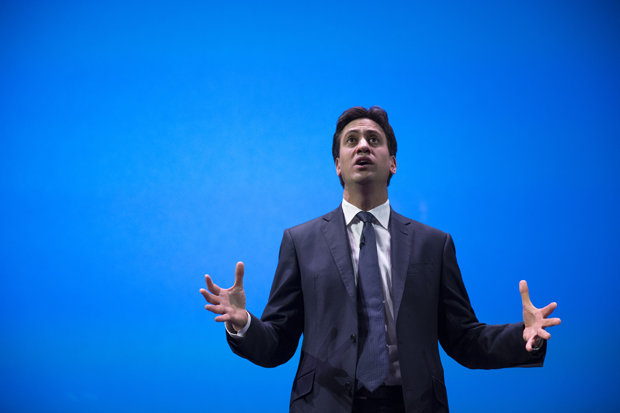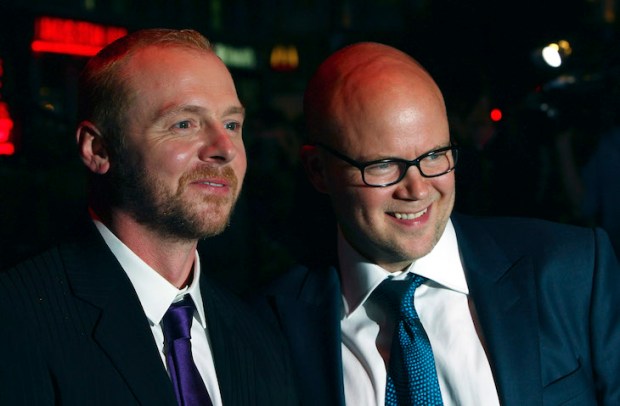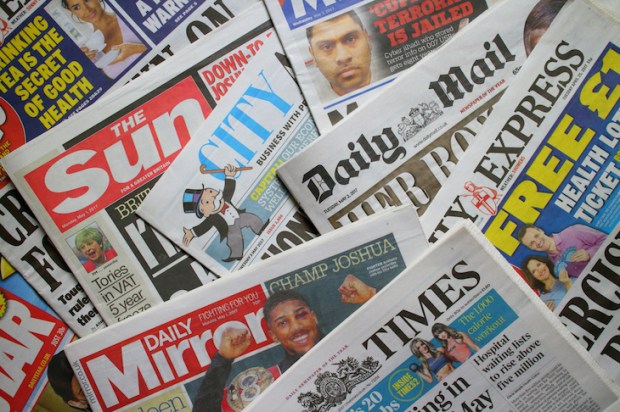I’ve been trying to think of a good football analogy to describe the battle between the two main parties as the general election approaches. One suggestion is the second leg of a Champions League game, with the Conservatives having won the first leg by one goal to nil. If we assume that the Tories are playing at home, that means Labour have to score two goals to win, whereas all the Tories have to do is not concede. Last week’s debate certainly felt like that, with Cameron playing a tight, defensive game and Miliband trying to score at every opportunity. The Conservative leader ended up winning on aggregate because the Labour leader failed to find the back of the net.
But a Champions League match suggests two teams of real quality, which is where the analogy breaks down. The past few weeks have felt more like a game in the bottom half of the Championship, something I’m all too familiar with as a QPR supporter. In these games you rarely see any quality. Rather, the team that wins is the one that makes the fewest unforced errors. Forget about Real Madrid versus Bayern Munich. This is Millwall versus Brighton on a rainy Tuesday night in April.
So far Labour seem to be making more mistakes than the Tories, although I’m biased. After the first televised clash, I was worried that Cameron might have made a tactical blunder in agreeing to the ‘debates’ — generally regarded as the biggest unforced error of the 2010 campaign. But watching Miliband struggling to stand out from the crowd in the seven-way debate was reassuring. That one also produced a marvellous own-goal in the form of Miliband’s revision notes, which he left behind in the green room.
The biggest unforced error to date has been committed by one of the smaller party leaders, and I don’t mean Natalie Bennett’s car-crash interview on LBC. I’m talking about Nicola Sturgeon telling the French ambassador that she didn’t rate Miliband and would prefer Cameron to remain as Prime Minister. That’s assuming she actually said it, of course, which she’s denied. As a Tory who doesn’t want Labour to recover in Scotland, I’d love to believe the memo was some sort of Zinoviev letter but I think it’s probably correct. After all, it’s no secret that it would suit the SNP’s purpose to have a Tory bogeyman in No. 10 rather than Ed Miliband. The likeliest explanation is that Sturgeon was more honest than she should have been with the French ambassador, not realising that the French embassy in London would, as a matter of diplomatic convention, relay the contents of the conversation back to the Foreign Office.
Michael Kinsley, the veteran American political commentator, defined a ‘gaffe’ as ‘when a politician tells the truth — some obvious truth he isn’t supposed to say’ and Sturgeon’s mistake falls into that category. So too did Cameron’s admission in a television interview with James Landale that he doesn’t want to remain in office for a third term. That proved to be a distraction from the Conservatives’ main campaign theme, which was unhelpful, but I don’t think the mistake was as grave as some political pundits maintained. Their claim that it ‘fired the starting gun’ in the Conservative leadership battle and licensed them to speculate about Cameron’s successor should be taken with a pinch of salt. Since when did they need an excuse?
It’s hard to know what impact these mistakes will have. Turned out the public thought better of Cameron after his third-term ‘gaffe’ than they did before, and the fact that Miliband was over-prepared for the second debate won’t have registered outside Westminster. In Sturgeon’s case, she and her allies won’t have any trouble convincing the SNP’s supporters that she’s the victim of some fiendish Tory plot, even if the memo actually helps Labour. True, fewer than 20,000 people have to change their minds in fewer than 20 seats for the Conservatives to win an overall majority, but there’s no evidence these key voters are paying any attention. In general, floating voters are less interested in politics than committed partisans.
That’s where my Millwall-Brighton analogy collapses. Yes, both main parties will commit some absolute howlers, but they’ll go largely unnoticed. In the end, the party that wins will be the one that most resembles Manchester United under Alex Ferguson — that is, the team that can grind out a result even when it’s playing badly. My money’s still on the Conservatives.
Got something to add? Join the discussion and comment below.
Get 10 issues for just $10
Subscribe to The Spectator Australia today for the next 10 magazine issues, plus full online access, for just $10.
Toby Young is associate editor of The Spectator.
You might disagree with half of it, but you’ll enjoy reading all of it. Try your first month for free, then just $2 a week for the remainder of your first year.
















Comments
Don't miss out
Join the conversation with other Spectator Australia readers. Subscribe to leave a comment.
SUBSCRIBEAlready a subscriber? Log in